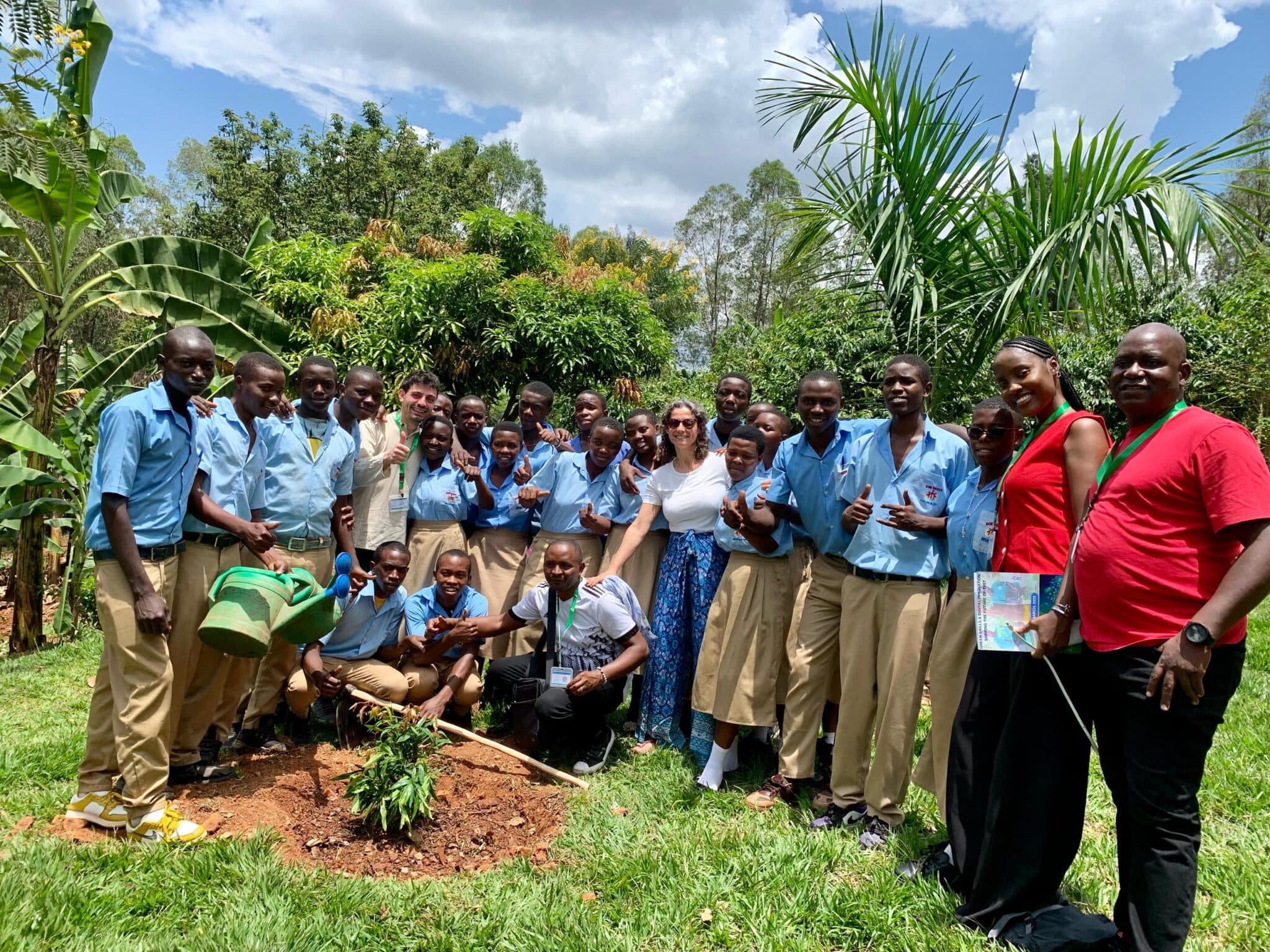The European and African partners of Sustain-IT gathered in Rwanda for a week-long study visit coupled with the first project’s meeting. The meeting with all the partners from Spain, Italy, Zimbabwe, and Namibia was organised to understand the level of environmental awareness among teachers and learners, their application of digital tools, and the TVET system in Rwanda.

The meeting started with an opening speech from the Project Manager Politeknika TXORIERRI, Sheila Larrabaster, In her speech, she iterated on how the study visit would help identify specific challenges in creating environmental awareness in education, digital tools, and skills needed to provide environmental education in the TVET system.
The partners visited the DON BOSCO institution Intitut de formation appostolique de Kimihurura, The science-based school focuses on improving students’ computer, biology, and geography knowledge and offers learning from the nursery level to the secondary level.
Sustain-IT organised a design thinking session to understand the teacher’s and student’s level of awareness of environmental topics and digital tools. Main discussions evolved around the causes of climate change and its effects on the environment and community, stakeholders involved in this change, and actions that can be taken. The discussion anchored by Santo Astorino, a Project manager from Mundus and circular and environmental education expert, Natalia Conejo Andrés on the causes and effects of climate change had answers like; Industrial activities, Deforestation, and Land pollution.
The outcome of the design thinking session will allow partners to establish a solid foundation for the project awareness raising, knowledge on challenge-based learning, and how to enhance youth action related to environmental sustainability, including a showcase of best practices.
The partners also visited the MUHAZI DB TVET school, in a rural area. Compared to the institutions in the city, the students admitted into this school lack basic English language knowledge and have a lower understanding of climate issues. This visit reveals a significant gender imbalance among learners, with a lower number of girls which can be attributed to societal factors. There is also a need for outcome-driven strategies in the system and limited access to technology which hinders learning and skill development. These insights shed light on critical challenges and opportunities within Rwanda’s TVET sector. And prepares the partner with relevant resources in the development of the educational toolkit.
The visit progressed with a stakeholders design thinking session to get a clearer understanding on the TVET system of the country and level of private sector involvement in technical training education. Theogene Mugisha , a stakeholder in the TVET sector and trainers of the Don Bosco school were in attendance. This session was particularly important for Ms Karemera Inyange , a TVET expert and program manager for European Commission on TVET and innovation in Rwanda as she expressed her interest in the training module that will be developed during the project and made available on the smartstep platform to all learners across Africa.
In terms of environmental policy implementation, the Rwandan government has made conscious efforts to ensure wide awareness of environmental issues, from its non-nylon policy to eco-friendly trash cans. “The TVET education system in Rwanda has adopted the competence-based curriculum and established the Greening schools project in primary and TVET schools,” Dominique Uwarugira said in his presentation on the TVET system in Rwanda and introduction to the school system. The project manager at the Don Bosco TVET school and a partner of the project went further to mention that major partnerships have been created with the Rwanda Environment Management Authority (REMA) to develop a training manual and guidelines, inclusive actions like environmental clubs in the TVET schools, primary and secondary schools, and communities engagement.
The SIMUKAI Vocational Skills Training Hub and Harare Institute of Public Health TVET institutions in Zimbabwe gave the partners insight into the country’s TVET system. The institutions experience more female enrollment. “80% of students in Harare are females”, Reconcile Makamure, the IT personnel from the Harare institution confirmed during his presentation. They also apply basic digital tools like; Moodle LMS, Google Classroom, Arduino
Zoom, Ms Teams, Autocad, Python React Js Typescript.
Apodissi, the leader of the communication and dissemination of the project, highlighted various environmental policies put in place by the Namibian government. “In 2004, the Namibian government had a Vision 2030 to produce an environmentally sustainable society. Which means more efforts on community engagement and eco-friendly practices” Blessing Sorinola, a Communication and Dissemination specialist highlighted in her presentation on the TVET system in Namibia.
As the project progresses, partners will continue to work towards achieving the project’s objectives through an expert session between European and African partners on environmental education awareness raising, challenge-based learning, use cases for environmental monitoring, a later aspect of the project led by APRO FORMAZIONE and enhanced youth action related to environmental sustainability.
By combining expertise from diverse regions, the project is set to make a lasting impact on skills development, digital literacy, and environmental sustainability within TVET institutions across Africa and beyond.

